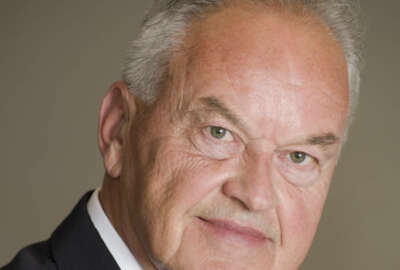
Federal WMATA? Don’t hold your breath
WMATA, like every transit authority, has always been something of a multi-headed octopus with murky accountability.
I finally got a close-up look at one of the new Metro cars, the so-called 7000s. It’s a subway car. But at least it has a floor that somebody can mop. I never could understand why the founding Metro fathers thought carpet in a subway car was a good idea.
Easy-to-clean hasn’t made Metro easy-to-manage. Now the accelerated maintenance program is lousing up the eastern end of the Red Line. That part of Montgomery County is sort of the original D.C. suburbs, where legions of federal employees first relocated. Many people starting out still move there because the houses are more affordable than in tony Bethesda and Potomac.
Surprisingly, it took until now for somebody to call for a federal takeover of WMATA — the Washington Metropolitan Area Transit Authority. This proposal comes from very chairman of the Metro Board, Jack Evans. Talk about throwing in the towel.
WMATA has always been something of a multi-headed octopus, its complications coming from having to serve five counties in two states and a would-be state. Metro is smaller than many American transit authorities. It doesn’t even have responsibility for the region’s stunted commuter train systems, MARC and VRE.
But WMATA shares problems with the other regional authorities, including:
- Authorities are not precisely state or city agencies, so they have murky lines of accountability. Every jurisdiction thinks all the others need to pay more of their fair share (fare share?). Remember the finger-pointing when a new bus station in Silver Spring nearly fell in from mushy concrete and poor design?
- They are sprawling logistics and political operations, covering large geographic areas and multiple political jurisdictions. New York’s Metropolitan Transportation Authority, according to its website, covers 5,000 square miles, and it schmears over into Connecticut. With a population of 15 million and a budget of $15 billion, it costs New York residents $1,000 each. Just try and untangle the Chicagoland’s Metra. (Although its subways run all night, as I found out once when I ran the Chicago Marathon).
- Fair boxes don’t cover the operating costs, much less the capital costs. Politicians are really good at short-term thinking … until tracks start literally burning up.
- Employees are largely unionized, which can limit management flexibility and incur unsustainable actuarial costs.
- Transit systems are the travel mode of last resort for many people. Yet because of road and parking constraints they are close to indispensable for people who can afford to drive.
Until we have universal telework and 100 percent self-driving, on-demand cars not requiring parking, transit is going to be transit. So will a federal takeover of Metro help?
Politically, I’m betting it’s a non-starter. I can see the franked newsletters: “I will not let your tax dollars pay to subsidize bureaucrats’ commutes to Washington.”
It’s constitutionally dubious, in case anyone still cares about that.
A federal takeover wouldn’t solve the basic problem — it costs a given quantity of centimes to get a body from Point A to Point B. Metro Executive Director Paul Wiedefeld is warning bus fares might go to $2. Given that the IRS reckons it costs around 50 cents for a car to go a mile, a 10-mile commute by car costs you at least $5. It probably also costs $5 to take you 10 miles on a bus that costs $600,000 to buy and $1,000 a day to operate. Where does the $3 come from?
What Evans and other supporters of this plan really want is not a federal takeover so much as a rational governance and funding structure. They are giving up on local governments and betting ultimately on Congress. That’ll come when Charlie returns from the MTA.
Copyright © 2024 Federal News Network. All rights reserved. This website is not intended for users located within the European Economic Area.
Tom Temin is host of the Federal Drive and has been providing insight on federal technology and management issues for more than 30 years.
Follow @tteminWFED






